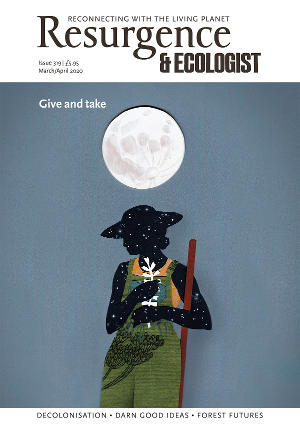Naomi Klein’s latest book, On Fire, contains an assertion rarely heard among climate change commentators: the uber-deniers of the notorious Heartland Institute have, in some ways, been right all along. Of course, she doesn’t mean that their contrarian views on climate change have been proven correct. The urgency of tackling global greenhouse-gas emissions, underpinned by an ever-strengthening scientific consensus, is at the heart of this book. Rather, that their hard-right fears that addressing the climate crisis will mean systemic economic and social change are well-founded.
While some have argued that climate change shouldn’t be a party political issue, Klein unapologetically makes the case that implementing the necessary changes will involve the kind of upheaval that is anathema to climate deniers and Heartland types – which include many of those who occupy the White House today. The climate crisis is not a problem that can be solved through markets and techno-fixes, and certainly not through geoengineering, Klein argues. Instead, reducing emissions and halting climate breakdown requires the kind of “left-wing plot” that climate sceptics have typically used as a smear against climate activists. It means shedding free-market ideology, reining in corporations, and taxing the rich. In a world where rising seas threaten to make small islands and coastal areas uninhabitable, and where wildfires are already causing mass evacuations, these interventions are no longer a case of political ideology: they are necessary for the survival of the planet as we know it.
In exchange, the world will become not only greener, but also kinder and fairer. In the introduction to the book (which is actually a collection of essays that she has written over the last decade), Klein cogently draws out the links between climate breakdown and other seemingly unrelated social ills. The idea that tackling the climate crisis should be bound with efforts to tackle poverty and racism, for example, has already proved somewhat controversial, even among those who have argued equally fervently for climate action. Michael Mann, a climate scientist at Pennsylvania State University, recently argued in a review of Klein’s latest work, “Saddling a climate movement with a laundry list of other worthy social programmes risks alienating needed supporters … who are apprehensive about progressive social change.” But Klein and others who might be called ‘left-wing’ know that building net zero-carbon affordable social housing with off-grid renewable technologies is a win–win.
Klein clearly believes that the tides of change are coming. The notion of climate justice, once a tangential part of the climate debate, has grown to prominence, particularly with the growing call for a Green New Deal in the US, supported by politicians like Alexandria Ocasio-Cortez, Bernie Sanders and Elizabeth Warren. This is not just another climate bill: it changes the way that legislators think about climate change, and it represents crunch time for the ideas that Klein has been pushing for a decade. There are plenty of obstacles – not only the Republicans in the White House, but also centrist Democrats who oppose such sweeping ideas – yet Klein shows that the idea has massive support from social movements across the US and that it is not as impractical or unrealistic as its critics have claimed.
As climate impacts worsen, the time has passed for incremental changes, Klein concludes, “and when the future of life is at stake, there is nothing we cannot achieve”. And I would add that whilst this book is US-based, the demand for green new deals is going global.







